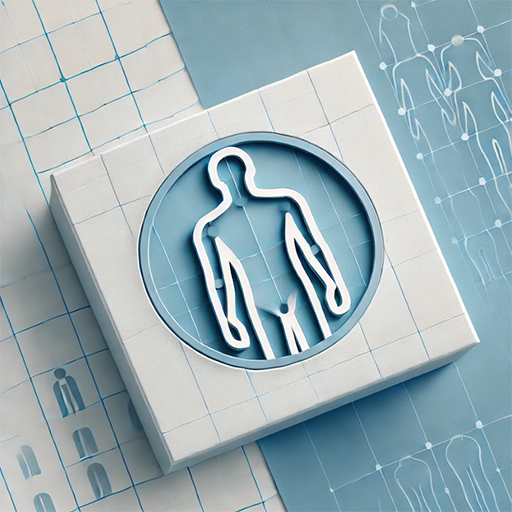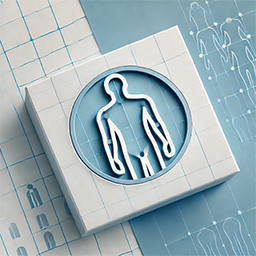Keeping your blood sugar levels steady is essential for maintaining good health. But did you know that losing even a small amount of weight can have a huge impact? Shedding just a few pounds can help your body use insulin more effectively and keep your blood sugar levels in check. Weight loss isn’t just about how you look — it’s a powerful tool for improving your overall health, both inside and out.
Whether you have diabetes, prediabetes, or simply want to feel your best, understanding how weight loss supports blood sugar control is a true game-changer. It’s one of the easiest and most effective ways to take control of your health.
Let’s break it down step-by-step in a simple and friendly way, so you can start making changes today that will last for years to come!
Why Blood Sugar Matters
Before we dive into weight loss, it’s important to understand why controlling your blood sugar matters so much. Your body needs sugar (glucose) for energy. But when blood sugar levels get too high, it can lead to serious health problems, including:
- Fatigue
- Vision problems
- Nerve damage
- Heart disease
- Kidney issues
Keeping your blood sugar at a healthy level helps you feel better today and protects your body in the long run.
According to the CDC, managing your blood sugar is one of the best ways to prevent type 2 diabetes and lower your risk for other chronic diseases.

How Weight Loss Helps Regulate Blood Sugar
When you carry extra weight, especially around your belly, your body has a harder time using insulin the right way. Insulin is the hormone that moves sugar out of your blood and into your cells, where it’s used for energy. But when there’s too much fat, it can lead to insulin resistance. This means sugar stays in your blood instead of getting used, causing your blood sugar levels to rise.
The good news? Losing even a small amount of weight — just 5% to 10% of your body weight — can:
- Improve how your body responds to insulin
- Lower your blood sugar levels
- Reduce your need for medications
- Boost your overall energy and well-being
A study published in the journal Diabetes Care found that modest weight loss helped participants lower their blood sugar and cut their risk of developing type 2 diabetes by up to 58%! Read the study here.
Simple Weight Loss Strategies That Help Blood Sugar
You don’t need a crash diet or intense workouts to see real results. The key to long-lasting success lies in making small, steady changes over time. Consistency is what truly helps you build healthy habits that stick, and these habits are the foundation for lasting health improvements.
Here’s how you can get started:
1. Focus on Real, Whole Foods
Eating healthy doesn’t have to be boring or hard! Focus on picking foods that are:
- High in fiber (like vegetables, fruits, and whole grains)
- Lean in protein (like chicken, fish, turkey, and beans)
- Low in added sugars
- Full of healthy fats (like avocados, olive oil, and nuts)
Fiber is especially important. It slows down how fast sugar enters your bloodstream, helping you stay full longer and keeping your blood sugar levels steady.
2. Watch Your Portions
Even healthy foods can cause blood sugar spikes if you eat too much at one time. Portion control is key to keeping your blood sugar steady and feeling your best.
Here are a few helpful tips:
- Use smaller plates to help control your portions
- Stop eating when you feel satisfied, not stuffed
- Avoid mindless snacking by eating with purpose and paying attention
Small changes like these can make a big difference over time!
3. Move Your Body Every Day
Exercise helps your muscles use sugar for energy, which naturally lowers your blood sugar levels. Staying active is one of the best ways to support your overall health.
Here are some easy ways to get moving:
- Go for a daily walk around your neighborhood or a local park
- Try a beginner’s yoga or dance class, either in-person or online
- Do simple bodyweight exercises at home, like squats or push-ups
You don’t need a gym membership to see results! Just 30 minutes of activity most days can make a big difference in how you feel and how your body manages blood sugar.
4. Manage Stress
Stress hormones like cortisol can cause your blood sugar levels to rise. Managing stress is an important part of keeping your blood sugar steady and feeling your best.
Try practicing stress-relieving activities like:
- Deep breathing exercises to calm your mind
- Meditation to help you relax and focus
- Gentle stretching to release tension in your muscles
- Spending time in nature, like taking a walk in the park or garden
These simple activities can help lower stress and keep your blood sugar levels in check.
5. Get Good Sleep
Lack of sleep can lead to higher blood sugar levels and even weight gain. Getting enough rest is essential for keeping your body healthy and balanced.
Aim for 7 to 9 hours of sleep each night. Creating a relaxing bedtime routine can help you unwind and fall asleep more easily. This might include reading, listening to calming music, or taking a warm bath to help your body relax before bed.
Prioritize sleep — it’s one of the best things you can do for your blood sugar and overall health.
What Happens to Blood Sugar After Weight Loss?
When you lose weight, amazing things happen inside your body:
| Positive Changes | How It Helps |
|---|---|
| Lower insulin resistance | Your body uses insulin better |
| Less inflammation | Reduces stress on your organs |
| Steady blood sugar | Less ups and downs in energy levels |
| Better heart health | Reduces risks of complications |
Many people even report that after weight loss, they can cut down on diabetes medications — always under a doctor’s guidance, of course.

Weight Loss Success Stories: Real-Life Inspiration
Many people have transformed their lives by focusing on healthy weight loss. By making small, consistent changes, you can see big improvements in your health over time.
For example, a success story from the American Diabetes Association shared how one woman reversed her prediabetes by losing 25 pounds through simple diet changes and daily walks. This small but powerful change had a huge impact on her health and well-being.
You could be the next success story! With dedication, patience, and the right steps, you can make positive changes to your health and enjoy long-lasting results. It all starts with taking that first step!
Tips for Staying Motivated
Let’s be honest — losing weight can be tough, but the benefits are absolutely worth it in the end. Every small step you take brings you closer to your goal, and every effort counts toward a healthier you.
Here are a few ways to keep moving forward:
- Set small, achievable goals: Focus on losing 5 pounds at a time. Breaking it down into smaller steps makes the journey feel more manageable and keeps you motivated.
- Celebrate your victories: Don’t just focus on the scale. Celebrate non-scale wins too — like having more energy, fitting into your clothes more comfortably, or feeling more confident in your daily activities!
- Find support: Whether it’s joining a group, teaming up with a friend, or connecting with online communities, having support can help you stay motivated and keep you on track.
- Be patient: Remember, lasting change takes time. Stay consistent with your efforts, and over time, you’ll begin to see the results you’ve been working hard for.
Every healthy choice you make adds up, and each small step brings you closer to becoming your best self!

When to See a Doctor
If you have high blood sugar or have been diagnosed with diabetes, it’s important to work closely with your doctor or a certified diabetes educator. They can guide you through the best steps to take for managing your health.
Here’s how they can help:
- Create a personalized weight loss plan: One that fits your specific needs and goals
- Adjust medications if needed: Ensuring you’re taking the right medications for your blood sugar levels
- Monitor your blood sugar safely: Regular check-ins to keep your levels in control and avoid any complications
Never make major health changes without the guidance of a professional. They can help you stay safe and get the best results.
You can find certified diabetes educators near you through the Association of Diabetes Care & Education Specialists. They’re there to support you every step of the way!
Final Thoughts: Start Small, Dream Big!
Weight loss plays a major role in helping regulate blood sugar levels — and even small changes can lead to big rewards for your health. You don’t have to change everything at once to see results.
The key is to focus on progress, not perfection. Pick one small habit you can start working on today. Maybe it’s taking a short walk around the block, choosing water instead of soda, or adding an extra serving of vegetables to your meals.
Small, steady changes like these build up over time and can make a huge difference in your health journey!
You’ve got this! 🌟 Keep moving forward, stay proud of every step you take, and remember — every healthy choice brings you closer to your goals!



